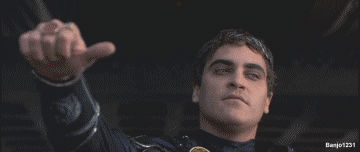From yellow clothing to time travel these are the 25 strangest things banned by governments around the world.
25 China: Game Consoles
 |
| In 2000 the Chinese government enacted the ban to prevent the youth from wasting their time and not working.
|
24 Russia: Emo Clothing
 |
| The government dubbed the style a “threat to national stability” and banned emo fashion in an attempt to bring down the high suicide rate among teens
|
23 Iran: “Western” Hair Cuts
 |
| Banned styles include mullets, ponytails, and spikes. |
22 Saudi Arabia: Valentine’s Day
 |
| The ban included restrictions on anything and everything red being sold on Valentine’s Day. It has led, however, to a thriving black market. |
21 Greece: Video Games
 |
| Although intended to be against electronic gambling machines, the law was written very broadly and led to the arrest of someone playing a video game in an internet cafe. After pressure from the EU the law was eventually changed.
|
20 China: Reincarnation Without Prior Consent
 |
| As crazy as it sounds this is China’s way of controlling the Tibetan Buddhists.
|
19 Denmark: Fortified foods
 |
| In Denmark there is apparently a strong fear in some circles of consuming too many vitamins. Unfortunately this has led to the banning of many popular products such as Ovaltine and Rice Crispies.
|
18 Romania: Scrabble
 |
| In the 80′s Romanian President Nicolae Ceausescu had the game banned and described it as “overly intellectual” and a “subversive evil”.
|
17 Manila: Claire Danes
 |
| After referring to the city of Manila as ghastly, weird, and smelling of cockroaches, every film by Claire Danes was eradicated from the city and the star was denied any future entrance.
|
16 Denmark: Most Baby Names
 |
| There are 24,000 approved government names for parents to choose from. If they want a different name then they have to apply for permission.
|
15 China: Avatar in 2D
 |
| Apparently the idea of people siding with an indigenous population against an imperialistic force wasn’t received well by the Chinese government. They did allow the movie to be released in 3D but the country has almost no 3D theaters so it made little difference.
|
14 NSA: Furbies
 |
| Although it wasn’t a nationwide ban, it was technically the government. In 1999 the NSA got paranoid that the toys could be recording classified information.
|
13 Malaysia: Yellow clothing
 |
| From t-shirts and wrist bands to hats and shoelaces, in 2011 the Malaysian government declared it illegal to wear yellow as that was the color of a certain group of opposition activists.
|
12 China: Jasmine
 |
| After the jasmine revolution in Tunisia inspired Chinese protesters the government didn’t just crack down on the protesters…it banned the flower itself.
|
11 USA: Haggis
 |
| Traditional Scottish haggis are made with sheep’s lung which has been an illegal food product in the United States for 40 years.
|
10 Cuba: Cell Phones
 |
| During Fidel Castro’s reign only high ranking government officials were allowed to have them |
9 Singapore: Chewing Gum
 |
| Since 1992 the import and sale of chewing gum has been illegal in the city in order to keep the city streets and public places clean.
|
8 Iran: Mannequins
 |
| Ok, not all mannequins, but you better not have any female mannequins without a hijab.
|
7 Bangladesh: Plastic bags
 |
| When they outlawed plastic bags in 2002 Bangladesh started a trend with France, Tanzania, and Mexico following.
|
6 Saudi Arabia: Driving for women
 |
| Although there is no written law against females driving, licenses are not issued to women.
|
5 France: Ketchup
 |
| In 2011 France banned ketchup from school cafeterias to preserve French cuisine. That is, unless you are eating French fries…then it is still legal.
|
4 Bolivia: McDonald’s
 |
| Once again, there is technically no law banning McDonald’s in Bolivia but if laws are meant to be the will of the people, the fact that almost no Bolivians ate at McDonald’s during its short stint in the country was as effective as any law at driving the golden arches out. Today it is the only Latin American country without them.
|
3 Sweden: Spanking
 |
| Forget banning school spanking, in Sweden not even parents can spank their kids.
|
2 Canada: Baby Walker
 |
| After studies in Canada showed that babies have delayed motor development when raised with walkers, they were banned in 2004. Today, Canadian babies learn to walk the old fashioned way.
|
1 China: Time Travel
 |
| Apparently due to the “frivolous” treatment of history by many TV shows and films that incorporate elements of time travel, Chinese censors have been cracking down in recent years. |






























